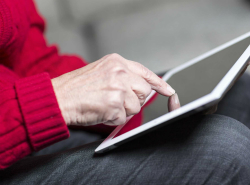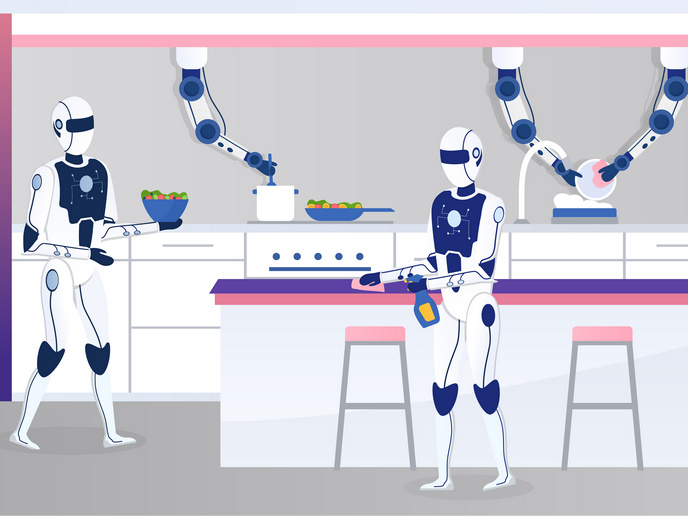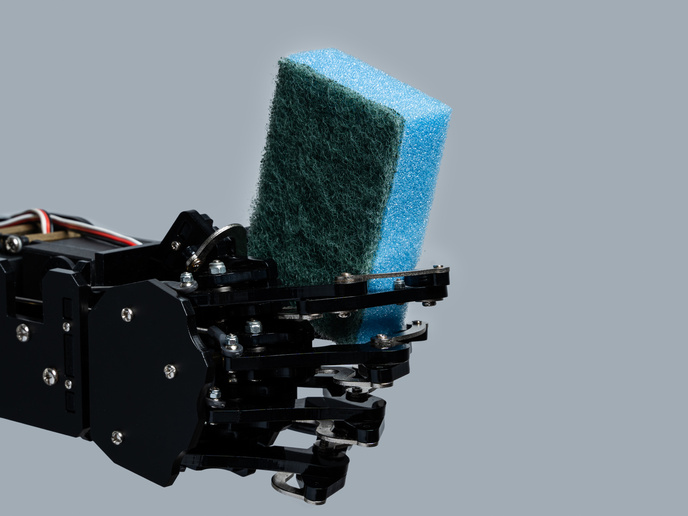Smart devices and applications for healthy ageing
Through PCs, TVs and tablets, DOREMI(opens in new window) (Decrease of cOgnitive decline, malnutRition and sedentariness by elderly empowerment in lifestyle Management and social Inclusion) aims at no less than prolonging older people’s functional and cognitive capacity. It focuses on prevention by conducting food intake measurements and personalised metabolic control, providing exergames to stimulate social interaction, and defining cognitive training programmes within the framework of a pilot study. All in all, DOREMI resorts to multidisciplinary research in the fields of serious games, social networking, wireless sensor network, activity recognition and contextualisation, as well as behavioural pattern analysis. ‘By recording and monitoring information about the use of the adopted lifestyle protocols, it is possible to track the user’s performance over long periods, providing a potential alert for signs of malnutrition or physical and cognitive deterioration,’ says Prof Oberdan Parodi, coordinator of the project. ‘The close collaboration between healthcare representatives and experienced technological partners enabled us to release a set of prototypes to be validated in the pilot study.’ Networked apps and devices The DOREMI system involves four core technologies and three apps. The technologies include the ‘Smart Carpet’ — a Wii-based balance board for daily weight assessment, an Android tablet containing all apps, a bracelet collecting patient metrics and sending it to a centralised home-based station, and about 10 environmental sensors installed in patients’ home to check their habits and measure their level of socialisation. Each app focuses on a specific ageing-related issue: fitness, cognition via a series of games, and diet. ‘Thanks to a visual approach the user can fill in a personal food diary, selecting food types and portions by means of images. Medical doctors will remotely check the diary and, if necessary, modify the participant's diet to promote healthy nutrition according to the general guidelines promoted by DOREMI,’ Prof Parodi explains. All collected data, be it from the serious games or other apps and devices, is integrated and displayed on the physician’s dashboards, which allow for remote inspection and control of the devices as well as well as providing information about the patient’s status. This all implies the set-up of a dedicated server in the patient’s home. ‘Each single installation has its own specific plan, and devices are linked to their actual position in the HOMER database,’ Prof Parodi says. ‘This installation information, which is anonymous for privacy reasons, is also very important for the interpretation of the acquired data: Think of what would happen if the caloric consumption of an individual is mixed with the food intake of another by mistake!’ Successful trials The DOREMI system has been tested extensively for two and a half years. 32 older people aged between 65 and 80 years old were involved in three-month trials taking place in the UK and Italy. ‘Subjects were characterised at baseline in terms of physical activity (SPPB, PASE test, daily steps/meters, 6MWT), hemodynamic and biochemical parameters (blood pressure, HR, lipid profile, glycaemia, etc.), dietary habits (caloric intake) and balance assessment (BERG scale). They were stimulated to perform an indoor physical activity protocol (exergame on a tablet); monitored by the DOREMI bracelet; invited to fill in a diet e-diary to receive nutritional advice provided by an expert; and tested for balance (DOREMI smart balance board). At the end of trial, users underwent the same test battery of baseline,’ Prof Parodi points out. The UK trials ended in April 2016, and 15 people over the age of 65 were enrolled to participate to the validation phase in three different villages. The first reports from the UK trials have been received, whilst the data from Italy is undergoing deeper evaluation. Patients evaluated the DOREMI solutions as being excellent: ‘Residents at ExtraCare and Accord in the UK have formed friendships in a group of residents who otherwise might not have got the chance, whilst encouraging a healthy lifestyle and active mind,’ Prof Parodi says. In both test sites, the DOREMI population saw an overall increase in physical activity, a significant improvement in hemodynamic (decrease in blood pressure at a six-minute walking test) and in tests scores for increased short physical performance. Changes in dietary habits have also produced remarkable effects on blood markers and somatometric parameters. Towards use in real-life situations Whilst the consortium doesn’t have commercialisation plans as of yet, there are plans for applying a subset of the DOREMI system to a real-life situation in Pisa, Italy. The Pisa Municipality started a project where a subset of the DOREMI system will be used to monitor the behaviour of elderly people and to improve their mobility thanks to the exergame. Equally, some subsets of the DOREMI system are ready to get to the market: ‘We consider the possible exploitation of the social and gamified environment, the monitoring environment and the context-aware smart system,’ Prof Parodi says. The reference market for DOREMI technologies includes hospitals, social care providers, end users, local authorities, insurance companies, general practitioners and social housing.







